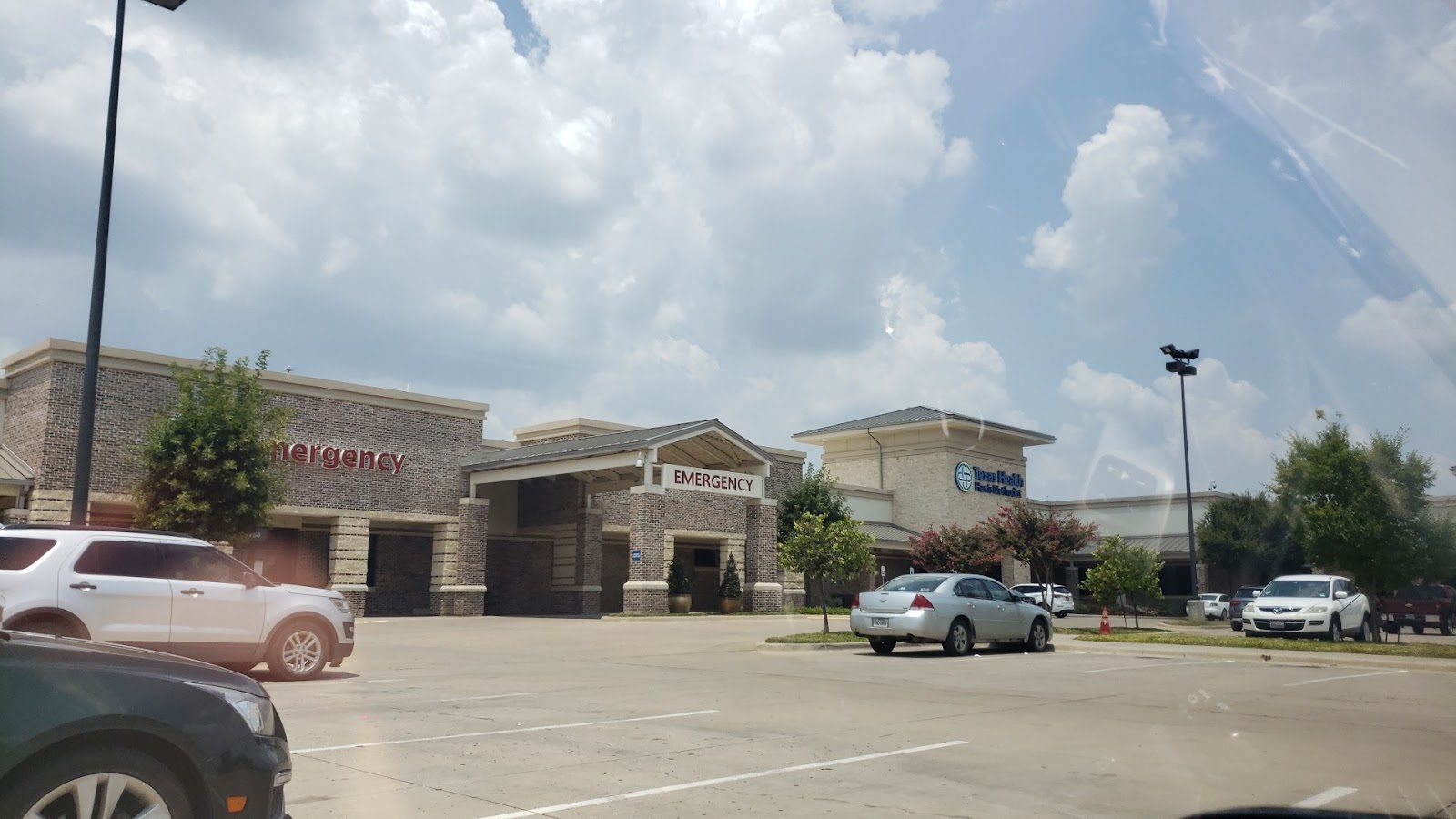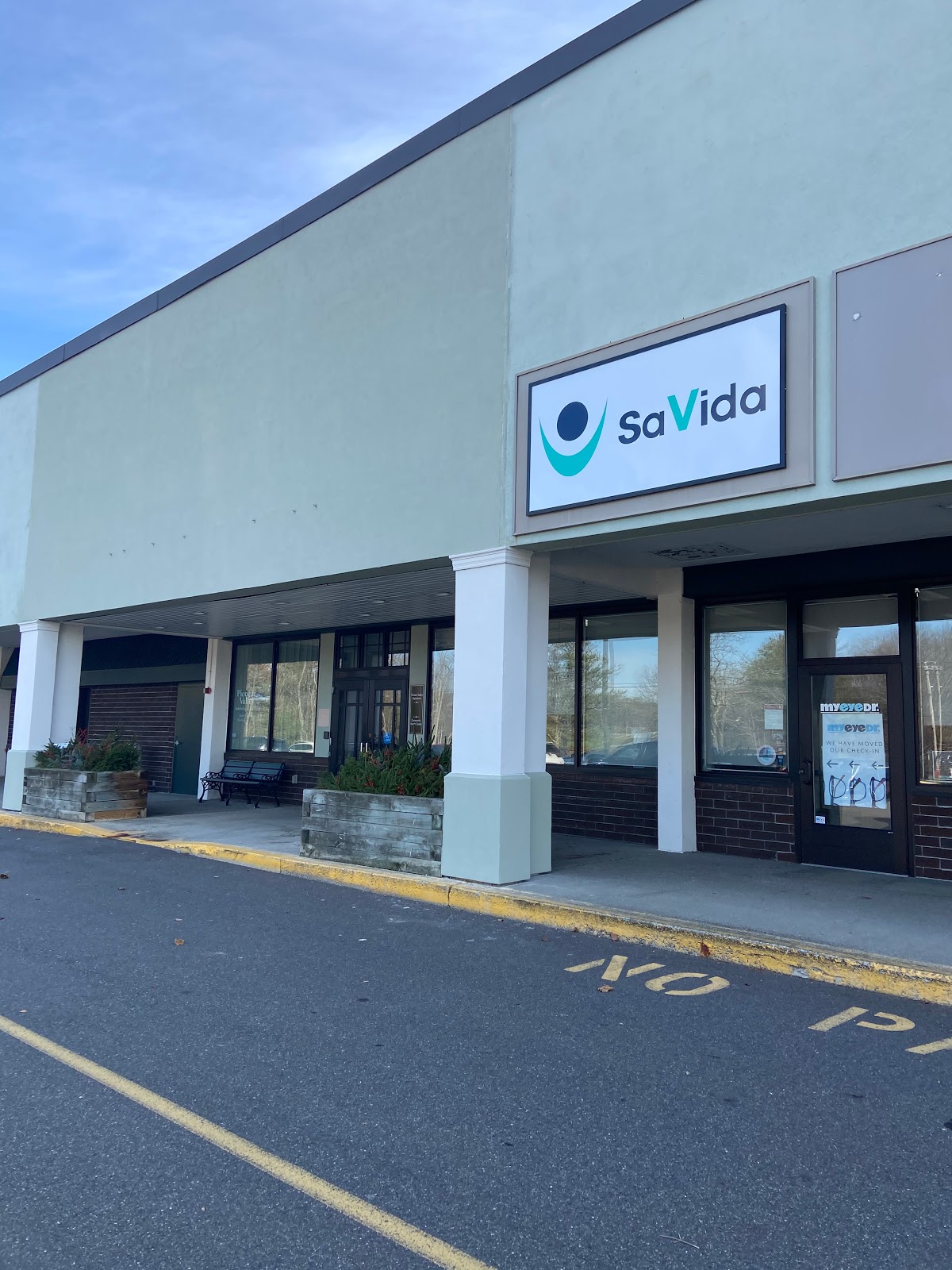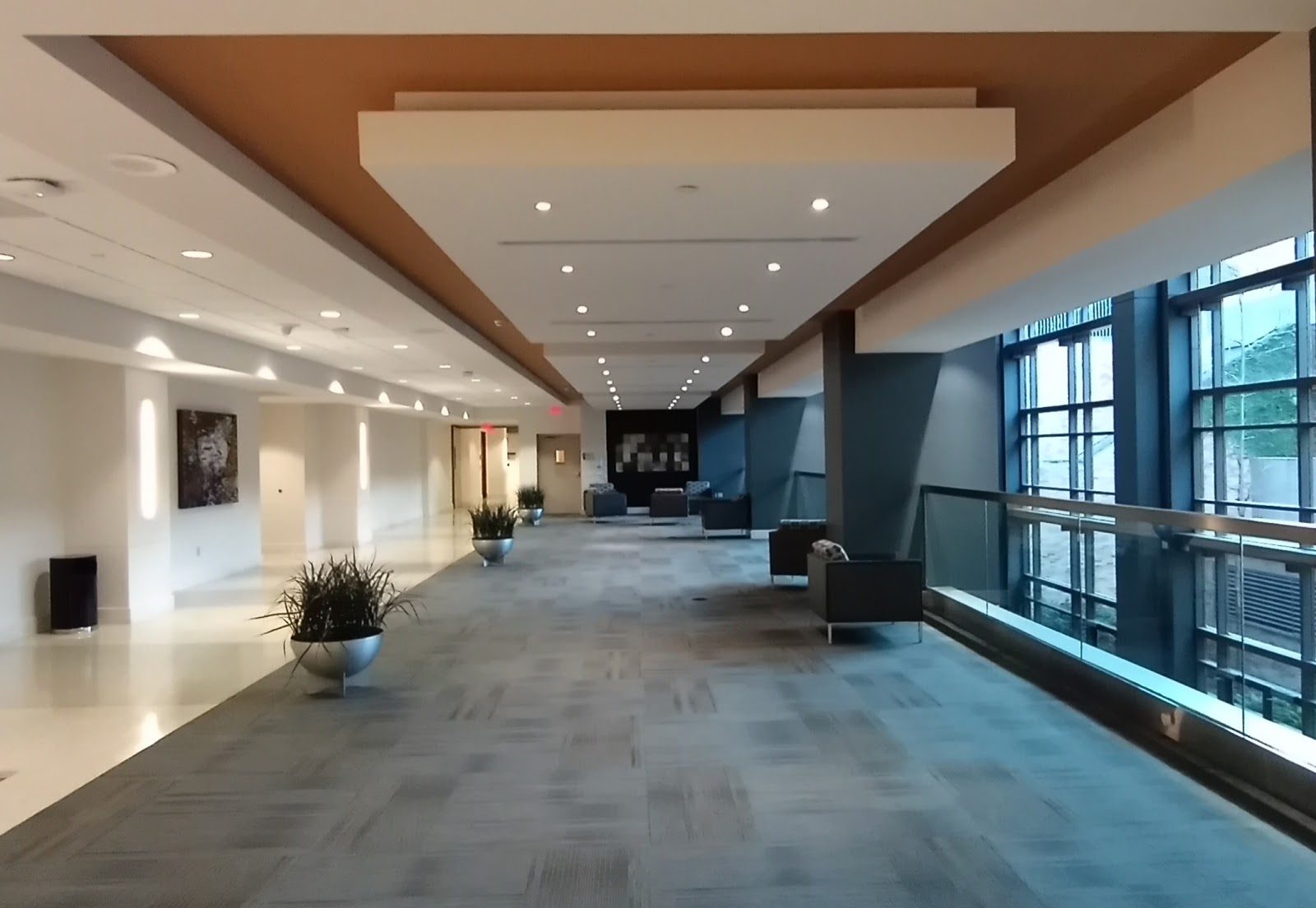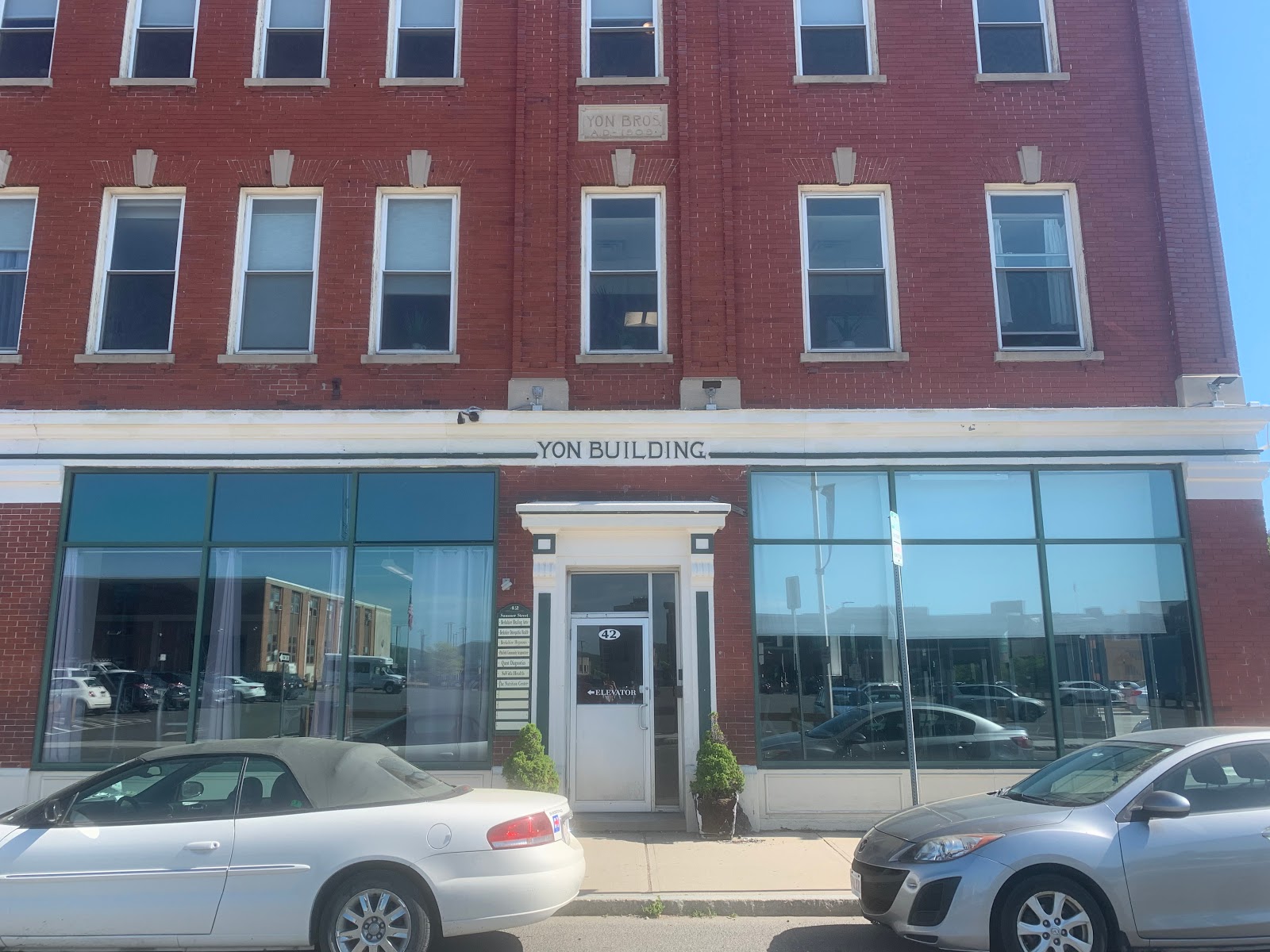Overview
Texas Health Neighborhood Care & Wellness Burleson is a substance abuse treatment center for people seeking treatment near Johnson County. As part of their treatment modalities for recovery, Texas Health Neighborhood Care & Wellness Burleson provides 12-step facilitation during treatment. Texas Health Neighborhood Care & Wellness Burleson is located in Burleson, Texas, accepting private health insurance for treatment.
Texas Health Neighborhood Care & Wellness Burleson at a Glance
Payment Options
- Private health insurance
- Cash or self-payment
- Medicare
Assessments
- Comprehensive mental health assessment
- Comprehensive substance use assessment
Age Groups
- Adults
- Children/adolescents
- Young adults
Operation
- Private non-profit organization
Accreditations
The Joint Commission:

The Joint Commission, previously known as JCAHO, is a nonprofit organization that accredits rehabilitation organizations and programs. Established in 1951, its mission is to enhance the quality of patient care and showcase excellence in healthcare delivery.
Treatment At Texas Health Neighborhood Care & Wellness Burleson

Conditions Treated
24-Hour Clinical Care:
At certain points in the recovery process, it's important to have support available 24/7. 24-hour clinical care offers a safe environment in which to recover from drug or alcohol addiction in peace, knowing medical detox and other treatment will happen with professionals on hand.
Mental health treatment:
Mental health treatment involves a range of therapeutic approaches, provided by licensed professionals, to address mental health challenges. It includes psychotherapy, medication, and holistic practices to help individuals manage conditions, improve coping skills, and enhance overall well-being. The goal is to empower individuals to lead fulfilling lives and reduce the stigma surrounding mental health.
Alcoholism:
Alcohol addiction is a health problem where drinking takes control over a person's life. It affects how their brain thinks and acts, leading to strong desires to drink, bad feelings, sudden actions, and discomfort when not drinking. To help someone with this problem, there are treatments like detox, counseling, group support, and learning coping methods. While treatment can't completely cure the urge to drink, it helps people regain control of their lives and feel better overall.
Opioid Addiction:
Opioid rehabilitation centers are dedicated to assisting individuals overcoming opioid dependence. They cater to those battling addiction from illicit opioids such as heroin, as well as those addicted to prescription medications like oxycodone. These facilities may provide a holistic approach that encompasses both physical care, which often involves medical detox and ongoing medical assistance (including medications), and psychological care through comprehensive therapy to tackle the root causes of addiction.
Substance use treatment:
Substance use rehabilitation embodies a holistic treatment approach crafted to assist individuals contending with drug or alcohol addiction. This all-encompassing rehabilitation strategy encompasses two crucial components: initially addressing the physical dependency, frequently commencing with detoxification, and subsequently confronting the psychological triggers through a diverse array of therapeutic methods. The overarching objective is to empower individuals to achieve and maintain sobriety while equipping them with essential skills and coping mechanisms for a successful reintegration into society and a life free from substance abuse.
Co-occurring Disorders:
Dual-diagnosis rehabilitation centers focus on treating individuals with simultaneous mental health and substance use disorders. The intertwined nature of addiction and mental health issues can intensify each other's symptoms, complicating recovery. These centers provide a holistic treatment strategy addressing both conditions together, often encompassing thorough evaluations, a blend of therapeutic methods, family counseling, and post-treatment care.

Levels Of Care
Hospital inpatient/24-hour hospital inpatient:
At certain points in the recovery process, it's important to have support available 24/7. 24-hour clinical care offers a safe environment in which to recover from drug or alcohol addiction in peace, knowing medical detox and other treatment will happen with professionals on hand.
Intensive outpatient treatment:
Intensive outpatient (IOP) supports clients in maintaining their sobriety by providing tailored, high-quality care that adapts to their changing requirements. Clients participate in numerous weekly treatment sessions, generally receiving between nine to twenty hours of outpatient care. As clients achieve stability, the treatment frequency and intensity gradually diminish. Many intensive outpatient rehabilitation centers offer a range of services, including addiction counseling, training in life skills essential for recovery, and medication-assisted treatment (MAT). Additionally, evidence-based complementary therapies are frequently integrated into the program.
Detoxification:
Drug and alcohol addiction often takes a heavy toll on one's body. Over time, a physical dependence can develop, meaning the body physiologically needs the substance to function. Detox is the process of removing drugs and/or alcohol from the body, a process that can be lethal if mismanaged. Medical detox is done by licensed medical professionals who monitor vital signs and keep you safe, healthy, and as comfortable as possible as you go through detox and withdrawal. The length of stay at the detoxification program is determined according to the specific needs of the patient.
Aftercare:
Finishing a drug or alcohol rehab program is just the beginning of the recovery journey. Aftercare focuses on establishing a long-term recovery plan, which encompasses continuous support. This might involve options such as residing in sober living homes or halfway houses, receiving career guidance, and connecting the individual with community support groups like Alcoholics Anonymous (AA) or Narcotics Anonymous (NA).
Outpatient:
Outpatient treatment in a rehab center offers flexible therapy sessions, typically ranging from 1-3 hours per week, allowing individuals to continue daily activities while receiving care. In contrast, intensive outpatient programs demand a more rigorous commitment, often involving 9-15 hours weekly, providing a more immersive therapeutic environment without the need for inpatient stays.
Hospital inpatient treatment:
Inpatient treatment involves an intensive, residential therapeutic program designed to treat serious addictions or other medical conditions. With a typical stay ranging from 30 to 90 days, individuals receive a structured regimen of various therapies including individual and group counseling, behavioral therapies, and family counseling. Under professional supervision, patients immerse themselves in a supportive environment, conducive to addressing underlying issues and promoting long-term recovery.

Treatment Modalities
12-step facilitation:
Recovery frameworks grounded in 12-step programs prioritize peer mentoring and underline personal development as essential for maintaining sobriety. Those in recovery are encouraged to attend 12-step meetings, which guarantee anonymity frequently, have no cost, and are accessible every day. These 12 steps draw from spiritual tenets, assisting participants in confronting the underlying reasons for their addiction, acknowledging their decisions, and embracing the aspects outside their control. Chosen by the participants themselves, sponsors offer individualized guidance and support.
Cognitive Behavioral Therapy:
Cognitive Behavioral Therapy (CBT) is a evidence-based psychotherapeutic approach that aims to address dysfunctional emotions, behaviors, and cognitions through a goal-oriented, systematic process. It involves identifying and challenging negative thought patterns and beliefs and replacing them with more constructive ways of thinking and behaving. CBT is commonly used to treat a variety of mental health disorders, including depression, anxiety, and phobias.
Nicotine replacement:
Nicotine Replacement Therapy (NRT) is a medically-approved approach designed to help individuals quit smoking by providing a controlled dose of nicotine without the harmful chemicals found in cigarettes. Available in various forms, such as patches, gums, lozenges, and inhalers, NRT reduces withdrawal symptoms and cravings, making the transition to a smoke-free life more manageable.
Group counseling:
Group Counseling is a therapeutic approach where individuals come together under the guidance of a trained counselor to share experiences, offer support, and gain insights. This collective format promotes mutual understanding and growth, allowing participants to learn from one another's perspectives and challenges.
Experiential Therapy:
Experiential Therapy is a therapeutic approach that emphasizes direct experience and active client involvement to gain insight into unresolved issues and trauma. Through guided activities, role-playing, and other interactive techniques, clients are encouraged to confront and explore their emotions in the present moment, leading to a deeper understanding and resolution of their challenges. This therapy is rooted in the belief that transformative change occurs through meaningful experiences.
Trauma-related counseling:
Trauma-related counseling addresses the deeply rooted psychological wounds and distress that often coexist with substance use disorders. Recognizing that past traumatic experiences can play a significant role in the onset and persistence of addiction, this therapeutic approach aims to help individuals understand and process their trauma, develop coping skills, and work towards healing. Individuals are better equipped to achieve long-term recovery and improved mental well-being by simultaneously addressing both trauma and addiction.
Individual psychotherapy:
Individual Psychotherapy is a personalized therapeutic approach aimed at aiding individuals in overcoming addiction and its underlying psychological triggers. A licensed therapist works closely with the individual through one-on-one sessions to unearth and address personal challenges, emotional issues, and behavioral patterns contributing to their substance abuse. Individual psychotherapy lays a robust foundation for a sustainable recovery and a better quality of life by fostering self-awareness, coping strategies, and healthier behavioral responses.
Eating Disorder Treatment:
Eating Disorder Treatment is a specialized approach to help individuals struggling with disordered eating patterns. It involves therapies, counseling, and medical monitoring by a team of professionals to promote recovery, address underlying causes, and improve overall well-being. The goal is to establish a healthier relationship with food and self-image, facilitating long-term recovery and well-being.
Family counseling:
Family counseling is a therapeutic approach that addresses the dynamics, interactions, and challenges within a family unit. Through guided discussions and interventions, a trained counselor helps family members understand one another, resolve conflicts, improve communication, and strengthen their bonds. This form of therapy can be beneficial for families facing transitions, stressors, or behavioral issues, promoting understanding and facilitating positive change in the familial environment.
Nutrition Therapy:
Nutrition therapy is a tailored dietary approach to managing and preventing certain medical conditions. Administered by registered dietitians or nutrition professionals, it involves the assessment of an individual's nutritional status and the development of personalized nutrition strategies to optimize health and manage specific health concerns.
Life Skills:
Life skills training encompasses a comprehensive set of abilities essential for individuals to thrive in society. These encompass time management, career guidance, financial acumen, and effective communication. In the context of addiction recovery, true success goes beyond mere abstinence; it's about flourishing. Life skills instruction equips individuals with the practical tools needed to navigate society successfully, paving the way for a fulfilling life and, consequently, lasting sobriety.
Religious Programs:
Religious programs in rehab integrate spiritual principles and practices with traditional rehabilitation methods to offer holistic healing and recovery. These programs cater to individuals who seek solace in their faith and believe that spiritual growth can significantly complement their journey to sobriety. By incorporating prayer, meditation, religious teachings, and fellowship, these programs aim to strengthen one's spiritual foundation while addressing addiction's physical and psychological challenges. Whether rooted in Christianity, Islam, Judaism, Buddhism, or other faiths, religious programs provide an avenue for deeper introspection, community support, and a renewed sense of purpose.
Holistic Treatment:
Holistic treatment in a treatment center encompasses a comprehensive approach towards achieving mental, physical, and emotional wellness during addiction recovery. Unlike traditional treatments that focus solely on combating addiction, holistic treatment delves into the underlying issues contributing to substance abuse, providing individuals with the tools to achieve lasting recovery. By integrating a variety of therapeutic modalities such as yoga, meditation, nutritional counseling, and alternative therapies like acupuncture, a holistic rehab aims to nurture the individual's overall well-being, fostering a balanced path towards a drug-free life.
Ancillary Services
Special Programs
- Pregnant/postpartum women
- Persons with eating disorders
- Clients who have experienced trauma

Additional Locations
Contact Information
DISCLAIMER: The facility name, logo and brand are the property and registered trademarks of Texas Health Neighborhood Care & Wellness Burleson, and are being used for identification and informational purposes only. Use of these names, logos and brands shall not imply endorsement. BetterAddictionCare.com is not affiliated with or sponsored by Texas Health Neighborhood Care & Wellness Burleson.





